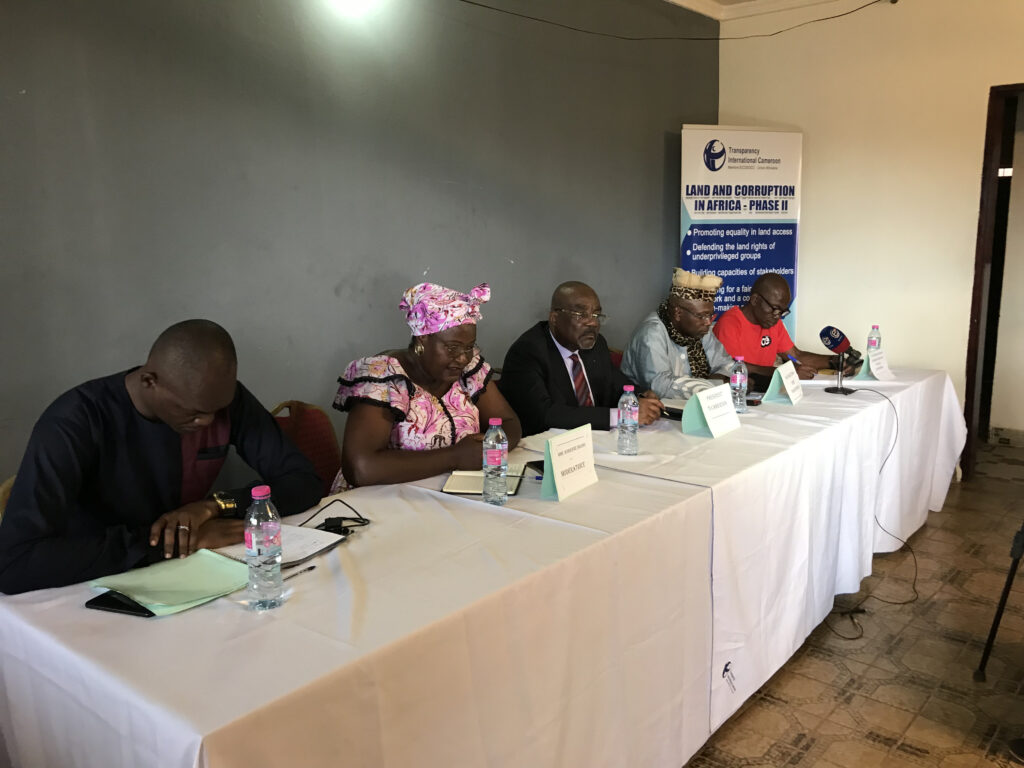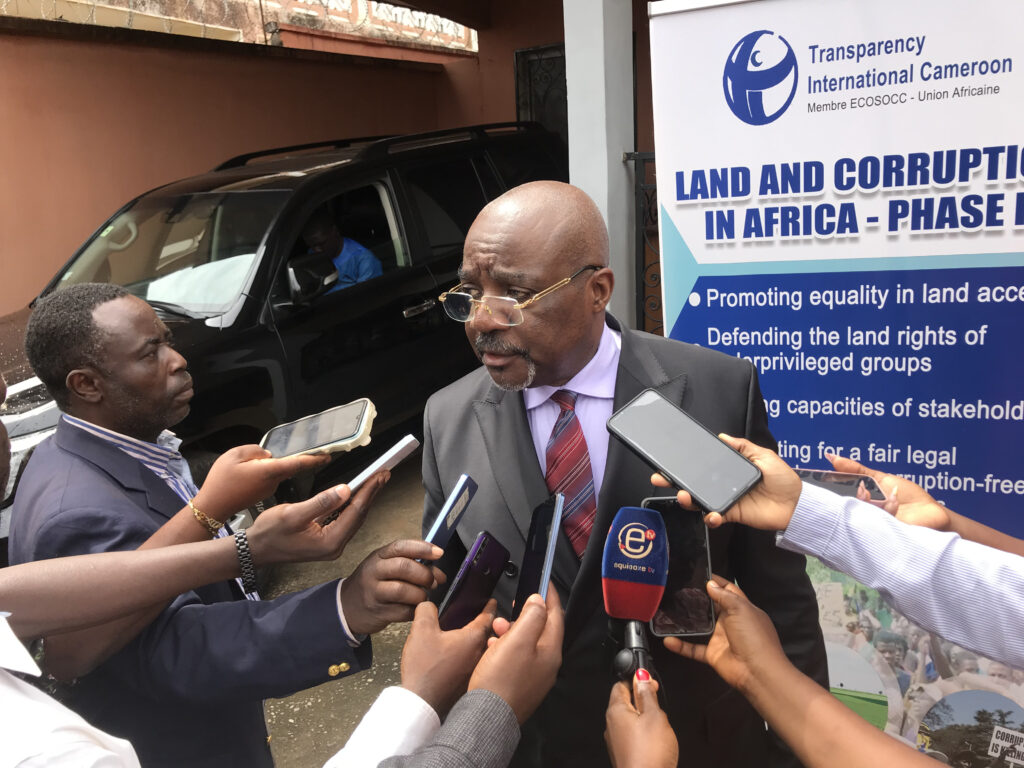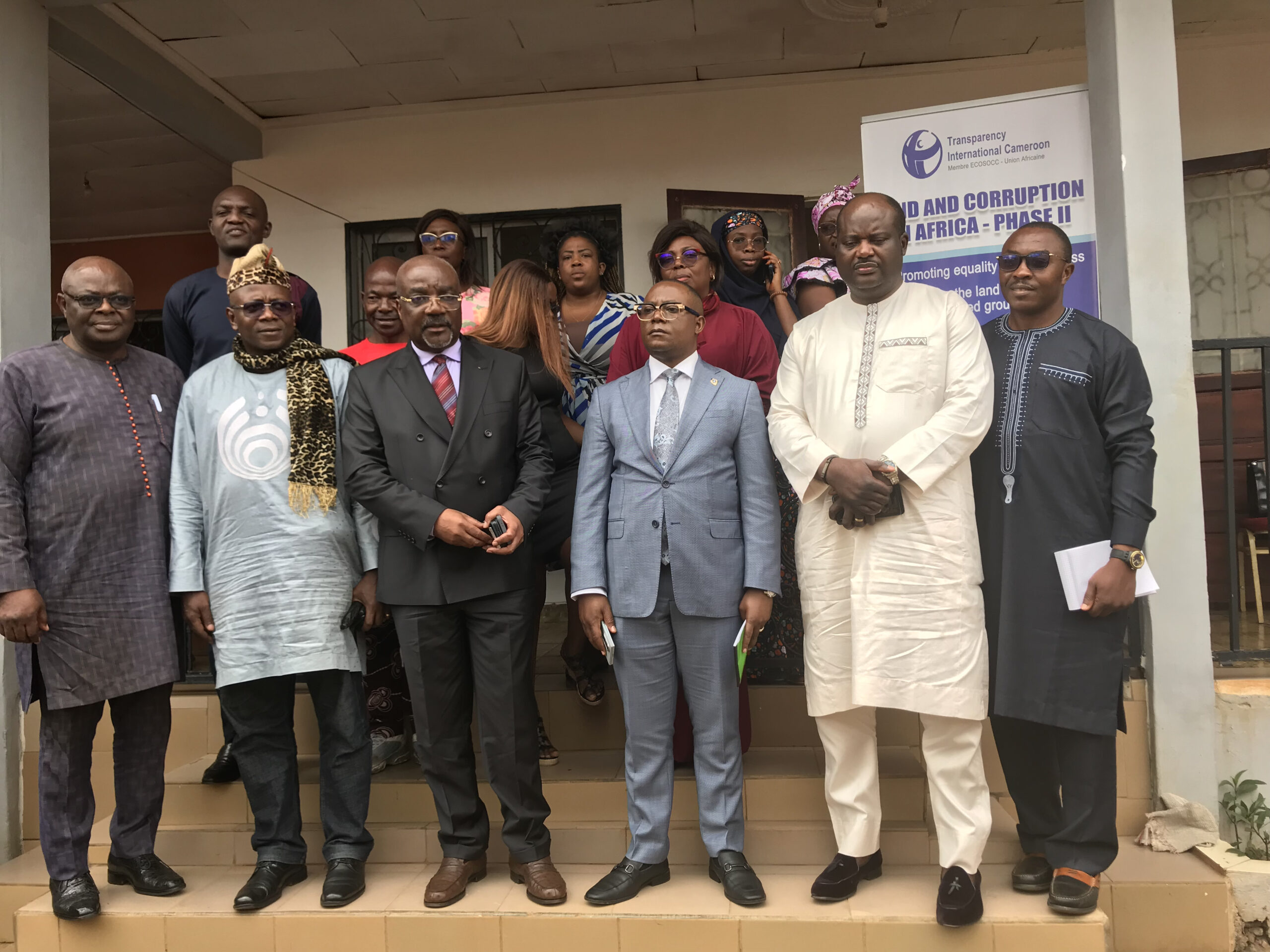By Leocadia Bongben
Stakeholders have agreed that land is no longer a time bomb in Cameroon but a daily explosion requiring reforms. This was during a press conference organized by Transparency International-Cameroon, TI-C, on September 25.
“Our chiefs are not recognised, Baguelli, Bakola, including Mbororos, and villages do not have land titles even though they have existed for ages, and we are considered landless people”, says Jean Marie Boleka, a Baka who depicts the dire situation of indigenous people whose right to land has not been recognised.
Boleka says large villages established long ago left the settlements in the forest to the outskirts due to pressure, including from illegal logging. Presently, indigenous people are faced with land grabbing in forests, marshy areas, and plantations, uprooting and leaving them worse off.

Stella Tchoukep, a forest campaigner for Greenpeace Africa, who understands the plight of indigenous people, says there is the whole question of the rights of Indigenous people and local communities. She cites the legislation that states that the national domain is the area that is unoccupied, open to community settlement, and where the state has exclusive administration and attribution rights. She argued that communities that owned land from the colonial era to 1974, when they were informed overnight that they needed the landowner’s title to verify that the land was theirs. “You have a document to prove that you own your potato farm, and if the state does not recognise you as a landowner, you cannot benefit from it.” She suggests a “collective title of landowner,” which grants the land’s rights to the entire community.
Ndiymba Divine Shey, a jurist at the Ministry of Land Tenure and State Property, still stresses that land belongs to the state, arguing that the population is ignorant of their rights. He reiterated that the current law, established in 1974, has not been implemented, suggesting that there is no need to hurry to change the law.
He points to the law, which states that when the land consultation board is in the area to plant pillars, all parties must sign documents immediately, and that any objections must be addressed.. He claims that corruption is possible when the surveyor is left to return by himself for demarcation. He says there is a rush for a new law with no guarantee that it will be respected
However, the MINCAF official said that the minister should be notified when a local official occasionally declines to sign a document with a hidden objective. According to him, the local populace needs to become aware of their rights to avoid being taken advantage of during land operations. The public must be educated about their rights, he stressed.

In addition to the suffering of the indigenous people, stakeholders believe that Cameroon’s land lease term is out of date and needs to be modified. For example, granting a 99-year lease to a company for a meager sum of less than FCFA 1000 per hectare is no longer in line with the objectives of the local community, who are the land’s caretakers. Mincaf’s official agreed that the procedure for lease should be reformed.
“We must formally acknowledge that MNCAF has an inclusive approach that must be greatly appreciated, especially with the incorporation of chiefs in the land commission,” says Patrick Zobo, a chief ruling over 22 villages in the lekie division.
At the level of the consultative commission’s composition, Tchoukep also praises the presence of these two notables alongside the chief, a positive dynamic, but deplores the absence of women and young people.
Under Phase 2 of the Land and Corruption in Africa initiative, TI-C has been investing in Cameroon’s land sector since 2022 to support good governance and the fight against corruption, according to TI-C President Barrister Henri Njoh Manga Bell.
He said that since 2018, TI-C has published the mapping of the integrity deficit in Cameroon’s land sector using a variety of methods, Corruption in Cameroon’s land rights for women and indigenous peoples in 2023, as well as a report outlining the country’s national strategy to combat corruption in the country’s land sector in 2024.
TI-C has led awareness campaigns in vulnerable communities such as Betaré Oya, Baturi, Ebodje, Kambélé, and Minganga, as well as sensitive areas like the Kribi Deep Seaport.

